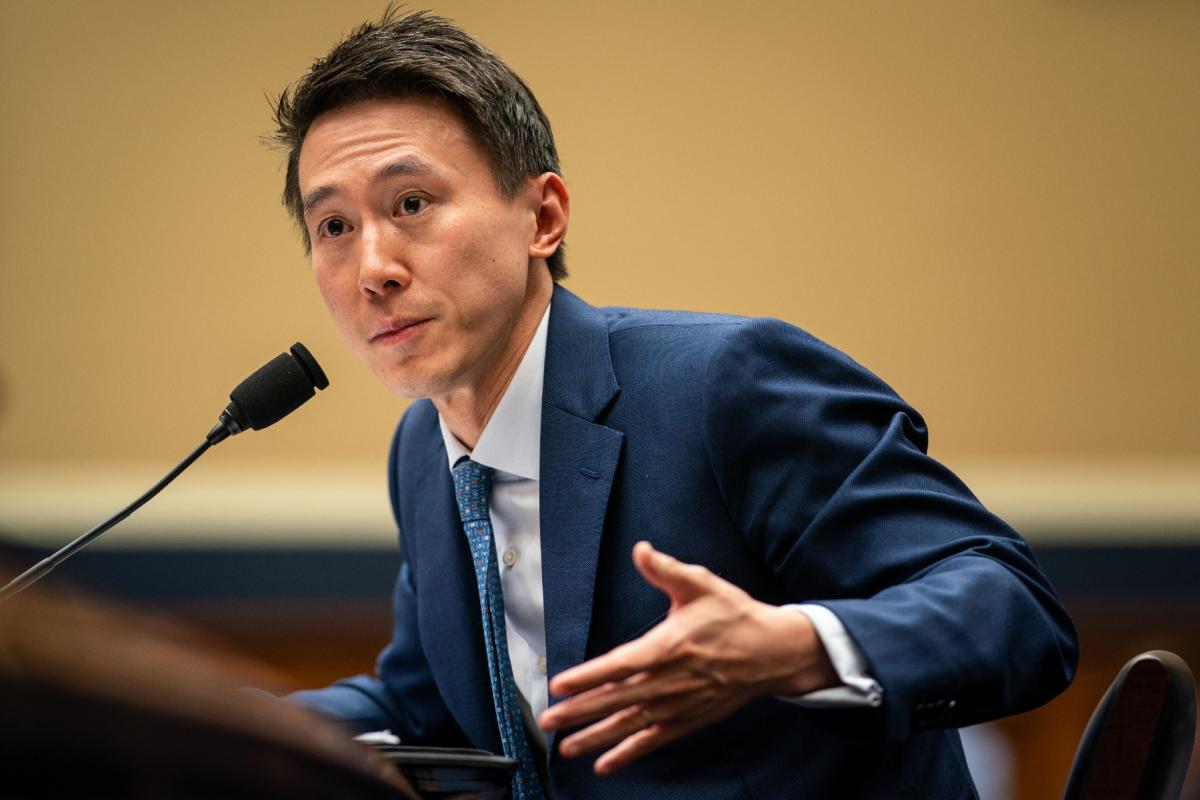
It felt like history on repeat.
Last Thursday, TikTok CEO Shou Zi Chew was called “a weapon of the Chinese Communist Party” and “the spy in Americans’ pockets” in a charged, five-hour appearance in front of the House Energy & Commerce Committee. In his prepared remarks, he addressed safety on the platform and attempted to reassure lawmakers that, among other things, TikTok’s parent company, the Beijing-based ByteDance, will soon no longer have any access to user data.
But microaggressions appeared to be on full display, as lawmakers mangled Chew’s name, assumed he was Chinese despite repeated reminders that he is Singaporean, and wasted opportunities to better understand the app’s potential dangers to repeatedly ask some version of an age-old ugly question: Was he, or anyone in his employ, a card-carrying member of the Communist Party? His country of origin, his Harvard University education, and that TikTok is an American company didn’t seem to matter. “They brought him in to yell at him and show they’re strong on China,” notes POLITICO’s Rebecca Kern.
Sure, there are plenty of reasons to be concerned about TikTok (and all social media platforms); more on that below. But the posturing of the committee was yet another unwelcome reminder for Asian Americans that they are permanent outsiders in the U.S. For many, the lingering debate over the origin of COVID, the rise in hate crimes, and political brinksmanship with China have created an environment of constant stress. “You can’t avoid paying attention to the rhetoric because it has a direct impact on our lives,” Ellen Min, a Korean American from Pennsylvania, told CNN.
I leave you with insights from psychologist Jenny Wang, author of the book Permission to Come Home: Reclaiming Mental Health as Asian Americans. She offers stirring advice in an interview appearing, of course, on TikTok. Feeling both targeted and invisible and burdened by oppressive stereotypes, Asian Americans are facing a well-being tipping point. To move forward, she says, abandon traditional coping mechanisms like stoicism and embrace your unique identity by becoming an active student of your history, personal and collective.
“Home is this idea that I no longer need to abandon parts of myself in order to live the life I want to live,” she says. “Permission to come home is the idea that I may have to cocreate that space in which I can exist authentically and in a powerful way.”
Ellen McGirt
@ellmcgirt
Ellen.McGirt@fortune.com
This edition of raceAhead was edited by Ruth Umoh.
This story was originally featured on Fortune.com
More from Fortune:
"asian" - Google News
March 29, 2023 at 12:18AM
https://ift.tt/TusaMoF
The xenophobic questioning of TikTok’s CEO highlights the outsider status of Asian Americans in the U.S - Yahoo Finance
"asian" - Google News
https://ift.tt/kLs257f
Shoes Man Tutorial
Pos News Update
Meme Update
Korean Entertainment News
Japan News Update

No comments:
Post a Comment